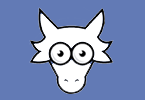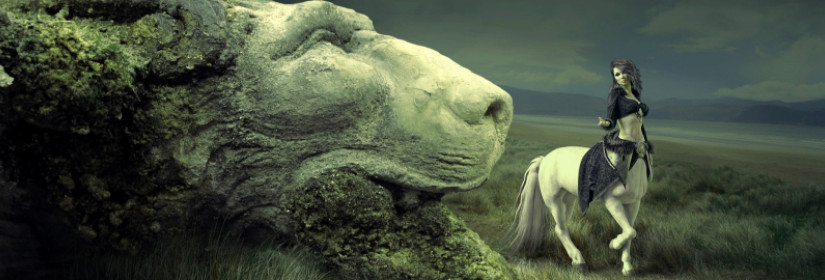Most writers probably don’t appreciate enough how much of an impact mythology has on our modern-day storytelling. No matter what genre you write in, mythology has played some role in shaping it, even if you don’t realize it.
It stems all the way back to ancient times before written language was even invented when myths formed the first stories told around campfires. Each of the basic story types listed in Christopher Booker’s The Seven Basic Plots can trace their origin back to ancient myths somehow. Homer’s Odyssey is a literal ‘voyage and return’ story. Most of the Arthurian legends center on a knight going out on a quest then returning to Camelot for their reward. In a sense, we are still adapting and building upon the stories invented by our ancestors.
But mythology does much more than just inspiring stories. It also gives books more substance and expands the fictional worlds of speculative fiction.
Why mythology in stories is important
Myths have inspired much more than just stories. They have influenced everything from the names we give to planets to the morals we pass down to children.
It makes sense that since mythology makes up an important part of our real-world culture, it should also be an important part of worldbuilding or fiction writing as well. Adding in a fictional mythology makes a created world more believable and makes a fictional story in a real-world setting more realistic.
Other genres won’t rely upon it quite as much, especially contemporary fiction, but it can be useful there too. Ancient stories which stand the test of time can provide writing prompts or inspiration. Modern-day adaptations of old fairy tales or folk legends may have been done a lot, but there is still a lot of original ideas you can get from them, particularly if you choose a story that isn’t quite as well known. The Golem and the Djinni did this well by taking two completely unrelated and lesser-seen mythological creatures and placing them together in late 19th-century New York.
It is probably even more important in science-fiction than it is in fantasy. A story taking place across multiple planets means there will be even more cultures with their own mythologies to explore, and even more which have shaped and influenced the world and the species which inhabit it. If an alien race seems bland or unrealistic, it might well be because they don’t have any mythology or sense of history.
Good and bad examples
Terry Brook’s Shannara series is an example of mythology handled poorly. The world in this series has an interesting backstory; it is not a make-believe fantasy world but a post-apocalyptic future of our own world in which society has devolved to pre-modern life.
Yet the author doesn’t go nearly as far enough as he could have done with this concept. It could have had modern-day stories become a part of the post-apocalyptic mythology, altered slightly to show how stories change as they are re-told over generations.
The Lord of the Rings would be a good example, probably because Tolkien extensively studied mythology and understood how it worked. In fact, he wrote his Middle Earth stories to give England its own mythology to rival the Greek or Roman myths. Not only are his works heavily inspired by many different works of mythology, they have their own sets of legends to expand upon the world, which makes Middle Earth feel incredibly old. There are already historical events so old that they have become myth. There are statues lying half-crumbled in the ground. The characters sing songs and tell each other stories of their own race’s folklore. It is all part of what makes Middle Earth seem so real and inviting, and a major reason why his books are so beloved and influential decades after they were written.
How to work mythology into your writing
In speculative fiction, mythology doesn’t need to be on the forefront of your make-believe world, but it should be at least partially important in some way.
There are many creative ways that you can work it in:
- An old legend might hold a clue to the main character’s quest or motivate the hero when they need it.
- Finding out that a myth is actually true.
- Solving the mystery of an old story.
- Discovering ancient ruins.
- Characters telling stories from their homelands to each other.
Stories set in the far future can greatly benefit from having their own mythology, perhaps even using modern-day stories or real-life figures distorted over time to become legends. This can really help to give the futuristic setting a sense of place and time and make the futuristic setting more believable.
Even in contemporary fiction, mythology can be used to great effect. Your main character’s favorite fairy tale or the story they loved most in childhood can say a lot about them and might have influenced their personality or moral character. Or your character’s own favorite story can give them inspiration when they need it, just as they do to us in real life.
No matter what genre you are writing, the way you exposit these myths will be important. If it is a widely known myth such as Hercules or King Arthur then the readers will need little if any explanation, since they are already such an integral part of our culture that most people at least know the basics about them. If you choose a story or figure which isn’t quite as well known then you will need some exposition, so long as it doesn’t go overboard.
Writing your own mythology
If you are writing a speculative fiction story, one of the best parts of worldbuilding isn’t just crafting the world of your story but also inventing an entirely new set of myths and legends for however many races or cultures exist in the world of your book. Essentially, you can write stories within stories.
But it is difficult, especially when you are putting so much time and energy into constructing the main story, so many authors skip it and leave their fictional world feeling empty.
This doesn’t mean that you have to spend hours on it or devote pages of exposition to explaining these myths. But the more attention you do give to worldbuilding, the more realistic and tangible your fictional world will feel, especially if you have given attention to its mythology.
Expositing fictional myths should be done like the example given above – only when it is needed without going overboard. An entire chapter of characters sitting around a campfire and telling stories can provide an important moment of character and relationship building, but the stories they tell should become relevant at some point later in the story.
But how exactly do you write mythology in a world which is already fantastical? Just as with most other parts of worldbuilding, taking clues from real-world mythologies is an excellent starting point.
This goes far beyond copy-pasting the Greek or Roman myths and changing the names around. It means looking at the types of stories and characters that make up mythology and their significance in the real world.
To make up your own myths, ask yourselves these questions:
- What is the creation myth?
- Is there a pantheon of Gods or just one?
- Who are the key figures and inspirational heroes in these stories?
- What are your world’s constellations?
- What do they think causes phenomena such as the Aurora Borealis?
- What role does magic play in these myths?
- Are there any people who still worship the mythological pantheon, the way neo-pagans do?
Don’t take your clues only from the most popular myths. Look into less common mythologies or stories which aren’t talked about as often outside of their own cultures, such as Aboriginal mythology or the Finnish Kalevala. Fantasy races such as elves and dwarves stem from European mythology, but races inspired by other continent’s myths would be entirely different, and much more original and creative.
Again, like real myths, fictional myths might play by different rules. Our own myths often include magic or direct divine intervention which don’t exist in reality, so your fictional myths might also bend the rules of the universe you are creating. You could even turn this into a plot point, such as characters discovering that the magic in their old stories isn’t fictional like they previously thought.
Writing mythology into a story, especially a work of speculative fiction, may be a headache, but it will be one of the most valuable pieces of worldbuilding and characterization in your entire story. You may well become just as fascinated with writing your fictional world’s mythology as you are with creating the world and story itself, or find yourself with a set of mythology you never previously knew about for inspiration.




